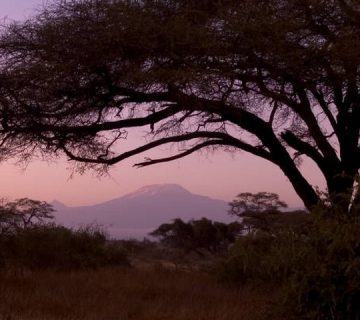Sustainable Food Options During Kilimanjaro Climbs
When planning a trek up the iconic Mount Kilimanjaro, every detail counts, from the right gear to the perfect meal plan. Are you looking for ways to keep your energy up and your environmental impact down? You’ve landed on the right page! Today, let’s explore how sustainable food choices can enhance your Kilimanjaro experience, ensuring you leave no trace other than footprints in the clouds. Join us, Kilimanjaro Centre for Trekking and Ecotourism (KCTE), as we climb not only towards the summit but towards greater environmental stewardship.
Why Choose Sustainable Food Options?
Climbing Kilimanjaro is not just about achieving personal goals but also about respecting and preserving the natural beauty around us. Sustainable food choices reflect a commitment to this respect. They minimize environmental impact, support local communities, and ensure that the ecosystems around this majestic mountain are left as untouched as possible.
1. Reducing Environmental Impact
Opting for locally sourced and organic food reduces the carbon footprint associated with long-distance food transport. Moreover, sustainable farming practices used in producing these foods help maintain the health of the soil and surrounding environment.
2. Supporting Local Economies
When you choose sustainable food options on your climb, you contribute directly to the local economy. Purchasing local produce supports Kilimanjaro’s neighboring communities, providing them with a stable income and promoting regional prosperity.
3. Enhancing Health and Energy Levels
Sustainable foods are not only good for the planet, but they’re excellent for your body too. Organic foods are often more nutritious and free from harmful pesticides, ensuring you’re fueled in the healthiest way possible as you ascend to the roof of Africa.
Our Approach to Sustainable Meals on the Mountain
At KCTE, we serve our climbers a balanced, nutritious, and environmentally friendly menu. Here’s how we ensure that every meal is aligned with our sustainability goals:
Locally Sourced Produce
We prioritize locally grown fruits and vegetables, which means your meals are fresher and tastier. Enjoy avocados, mangoes, and bananas straight from the local farms, and relish the rich flavors that only local produce can offer.
Eco-friendly Cooking Methods
Our cooking methods are designed to conserve fuel and reduce waste. We use energy-efficient stoves and plan our meals to minimize leftovers, ensuring that we leave the smallest carbon footprint as we ascend.
Composting and Recycling
Any organic waste generated during our climbs is responsibly disposed of through composting, turning waste into a resource that benefits the mountain’s flora. Non-organic waste is carried down the mountain for proper recycling or disposal.
What’s on the Menu?
Wondering what kind of delicious, sustainable meals you can expect during your Kilimanjaro climb? Here’s a sneak peek:
Breakfast
- Local Oatmeal with honey from local beekeepers and topped with fresh fruits.
- Kilimanjaro Coffee or Tea: Brewed from local beans and leaves.
Lunch
- Vegetable Wraps: Packed with fresh, crisp veggies grown in nearby villages.
- Fruit Snacks: Seasonal fruits providing natural, quick energy.
Dinner
- Grilled Chicken or Fish: Sourced from local farms or nearby lakes.
- Vegetable Stew: A hearty, warming stew that uses a variety of locally sourced vegetables.
- Highland Rice or Ugali: A staple carbohydrate source, filling and energizing.
Eco-friendly Practices for Climbers
While we provide sustainable food options, we also encourage our climbers to adopt eco-friendly practices during their trek:
- Carry a Reusable Water Bottle: Reduce plastic waste by refilling your bottle at designated water stations.
- Avoid Single-Use Plastics: Bring reusable bags and containers for snacks and personal items.
- Follow Leave No Trace Principles: Be mindful of your surroundings, dispose of waste properly, and respect wildlife.
Join Us for a Sustainable Climb
Ready to experience the majestic beauty of Kilimanjaro while maintaining a commitment to sustainability? Book your climb with Kilimanjaro Centre for Trekking and Ecotourism (KCTE) and enjoy a journey that’s as responsible as it is breathtaking. Together, we can reach the summit while honoring the natural splendor of this incredible region.
FAQ: Sustainable Food Practices on Kilimanjaro
What if I have dietary restrictions?
We cater to various dietary needs, including vegetarian, vegan, and gluten-free options. Just let us know in advance!
Can I bring my own food?
Yes, you can bring your own food. However, we encourage you to follow sustainable practices with your choices and packaging.
How do you ensure food safety?
Our team is trained in food hygiene and safety protocols, ensuring all meals are prepared with the utmost care.
Is there an opportunity to learn about local cuisine?
Absolutely! Our guides love sharing insights about local food and culture. You’ll have a chance to taste and learn about traditional dishes unique to the Tanzanian highlands.
Conclusion
Climbing Kilimanjaro is a memorable adventure, and making sustainable food choices during your trek makes it even more rewarding. Not only will you enjoy delicious, nourishing meals prepared with care, but you’ll also support environmental conservation and local communities. Book your eco-friendly Kilimanjaro climb with Kilimanjaro Centre for Trekking and Ecotourism (KCTE) today, and take the first step on a journey that feeds your soul and respects the planet.




